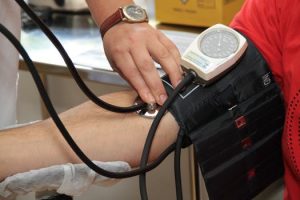
Source: pixabay.com
Gastrointestinal (GI) problems involve, as you know by now, the abnormalities that take place in a person’s digestive system. You may sometimes be unable to defecate (constipation); other times, you can’t stop doing it (diarrhea). Acid can also rise from the stomach, or your metabolism rate is much slower compared to other people.
The thing is, the treatment for a GI issue can take a few weeks to over six months, depending on how severe it happens to be. And yet various studies show up on the Internet claiming that psychiatry may help treat the patients if medications do not work. Thus, you may ask, “In what ways can psychiatry be helpful for gastrointestinal sufferers?”
- Accepting That Seeking Medical Assistance Is A Must
The first problem that folks living with GI symptoms deal with is their habit of putting off health consultations until they can no longer walk as the pain extends to other body parts. Some individuals who have upset stomach tend to say, “Oh, I’m blaming it on the food I ate earlier.” They only feel like calling a doctor or going to the emergency room once they start to vomit nonstop or poo dark blood.
Undergoing psychiatry can help people like this to realize that they don’t need to play cool all the time. You know your body – you can tell when something is wrong with it – so there’s no logical reason to wait for the worse before seeking medical attention.

Source: pexels.com
- Receiving Diagnosis
When you mention to friends and family members that you are about to get checked for a gastrointestinal disorder, you won’t only hear comments like “I’m sure everything will be all right” or “We’re always here for you.” Many concerned loved ones may even warn you against believing the interpretation of your current doctor regarding your condition. Because of that, you might transfer from one specialist to another for as long as you don’t get a different opinion.
In reality, being in denial is a mental problem that psychiatry may be able to help you fix. Though you understand deep down that the diagnosis is authentic, an incident in the past may be stopping you from recognizing the truth. Hence, the psychiatrist will then try to teach coping mechanisms so that you can overcome such issues and accept your diagnosis with a clear mind.
- Making Treatments Work
If you once thought that medical doctors do not believe in the power of strong will, think again. They study every patient’s case and prescribe the right drugs to provide digestive relief, yes. However, these professionals are also smart enough to know that their skills won’t do much if you are not devoted to the healing process.
If even the best GI doctor cannot fix your condition, a psychiatrist can come to make the patient remember why he or she went for a checkup in the first place. It may be because of his or her goal to watch the kids grow up. Perhaps the individual has not gone to his or her dream locations yet. The more the therapist encourages the person to talk about their aspirations, the more he or she wants to fight the illness harder than ever.

Source: pexels.com
Isn’t it amazing how a physical disorder might be curable by a mental practice? Psychiatry and gastroenterology are two branches of medicine that never get paired together, but studies reveal that they are indeed a great match for each other.
So, in case your digestive system gets troublesome in the future – or you cannot rely on medication – consider talking to a psychiatrist to clear your head. You need that to heal well and possibly prevent gastrointestinal issues in the future.
Good luck!